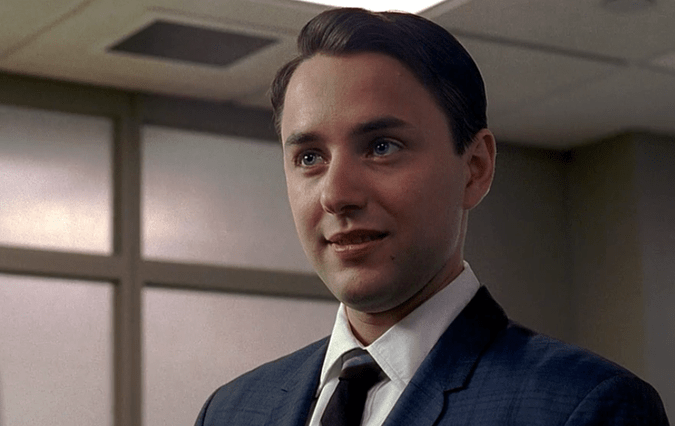[Editor’s Note: To find out more about support options available for survivors of sexual abuse, visit the official website for RAINN, the nation’s largest anti-sexual violence organization.]
So you may have heard that The Mary Sue will no longer be covering one of HBO’s biggest shows because of the inclusion of yet another unnecessary and exploitative rape scene. There have been many reactions to this scene, including discussions of censorship, the right to adapt and revise literature, marketing vs. editorial coverage, and the difference between addressing and depicting rape on-screen. But one issue we may have overlooked is that the way in which shows present the aftermath of rape and sexual assault is also important.
The issue comes down to using rape as an interchangeable plot device, and not addressing the long-term effects it would have. That is when rape becomes “gratuitous.” We don’t only see this in Westeros; for example, the first scene of one of the most praised shows on TV last season, The Affair, featured a husband played by Joshua Jackson raping his wife, played by Ruth Wilson. The scene appeared at the end of Dominic West’s character’s retelling of the events, and was shocking. But what was really appalling for me, and ultimately affected the way I viewed the entire show, is the fact that we saw no impact. West’s character claims he saw a rape and did nothing to stop it, report it, or respond to it, and he saw Wilson’s character having no reaction to it, either. It didn’t seem to really change the way the two men interacted. It was the definition of a gratuitous rape scene, because it appears to have only been included to titillate West’s character. That’s one reason I have to believe West’s character was lying about witnessing the rape, because his reaction was just too unforgivable for it to have existed outside of his imagination.
And then there are the times when shows depict rape or sexual assault, but don’t want to define it as such. Mad Men is, in my opinion, the worst offender, particularly in a scene that featured Vincent Kartheiser’s Pete Campbell having sex with au pair Gudrun (Nina Rausch) in “Souvenir.” Creator Matthew Weiner claimed it wasn’t rape. Kartheiser claimed it wasn’t rape. But it was unquestionably rape, and it made me lose a lot of respect for Weiner to hear him claim otherwise; it suggests he has a very narrow (and dangerous) view of what rape really is. Because of that, Mad Men made one of their main characters into a rapist – and then never dealt with it. Arguably, we’ve seen the same thing on Rescue Me and Louie.
The problem is, while the shows can try to sweep these assaults under the rug, they can’t wipe them from our memories. Even Gilmore Girls left a bad taste in my mouth after Milo Ventimiglia’s Jesse, of whom I was a fan, was pretty forceful about having sex with Rory (Alexis Bledel). Their scenes never lead to any consequences, as if the show didn’t want to be weighed down by what they’d done, so these acts of violence against women are ultimately nothing more than contrived plot devices.
Even shows that attempt to address the subject all too often miss in execution. The extended storyline in Law & Order: SVU, with Olivia’s (Mariska Hargitay) attempted rape by Lewis (Pablo Schreiber), became so melodramatic and complicated it overshadowed the real issues they initially wanted to address. All in the Family, although praised for depicting an attempted rape in the ’70s in “Edith’s Birthday,” never re-addressed Edith’s trauma after the initial event.
There are a few shows that have handled this issue well, and made an effort to be respectful to audiences that likely victims. The Sopranos, which did show a change in Dr. Melfi (Lorraine Bracco), who breaks down after being raped in “Employee of the Month,” and, for better or worse for the character, had a major impact on her inner life. Although it had lots of problems in other areas, Private Practice did deal with an extended storyline about the rape of a main character, Charlotte King (KaDee Strickland) respectfully, because they actually showed that the trauma is extended, and affects women’s lives, and their relationships with others, long-term. And even Six Feet Under – although the crime against David (Michael C. Hall) in “That’s My Dog” was not a sex crime – handled his reaction, trauma, and recovery are very similarly to victims of rape. Ironically, the outrage from fans who said they wouldn’t watch the show anymore was very similar to the outrage we are seeing currently; but I would argue these shows handled the subject matter the way these stories should and need to be told when used in fictional television.
Rape isn’t (and shouldn’t) be some plot device that can be moved around to punctuate a sagging storyline. It reflects a very real, traumatic crime that has a long-term impact on the lives of survivors. And because of that, TV has a responsibility to also reflect the real terror, trauma, and recovery people go through when they choose to depict these events on screen.
—Please make note of The Mary Sue’s general comment policy.—
Do you follow The Mary Sue on Twitter, Facebook, Tumblr, Pinterest, & Google +?









Published: May 21, 2015 10:30 am